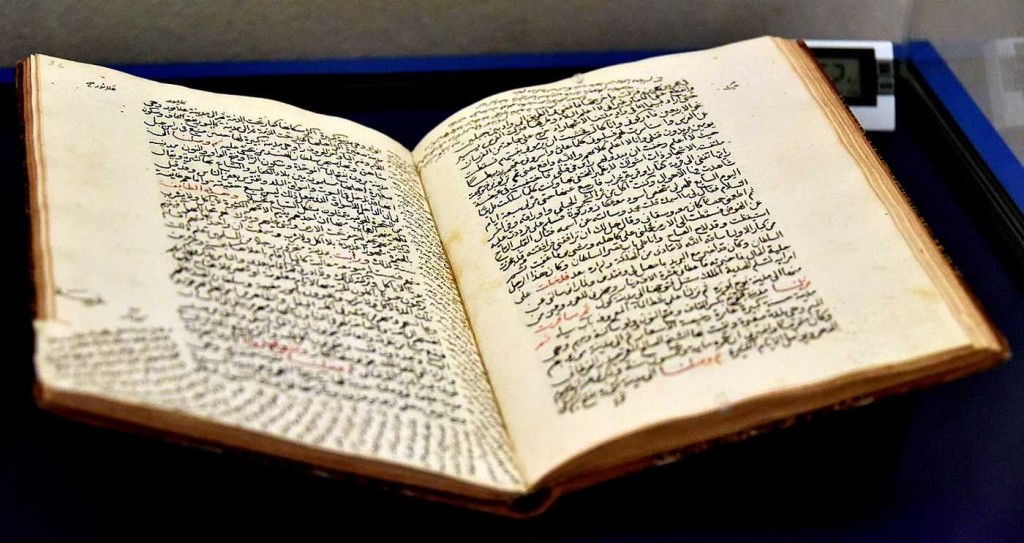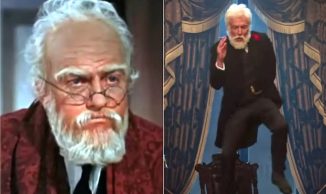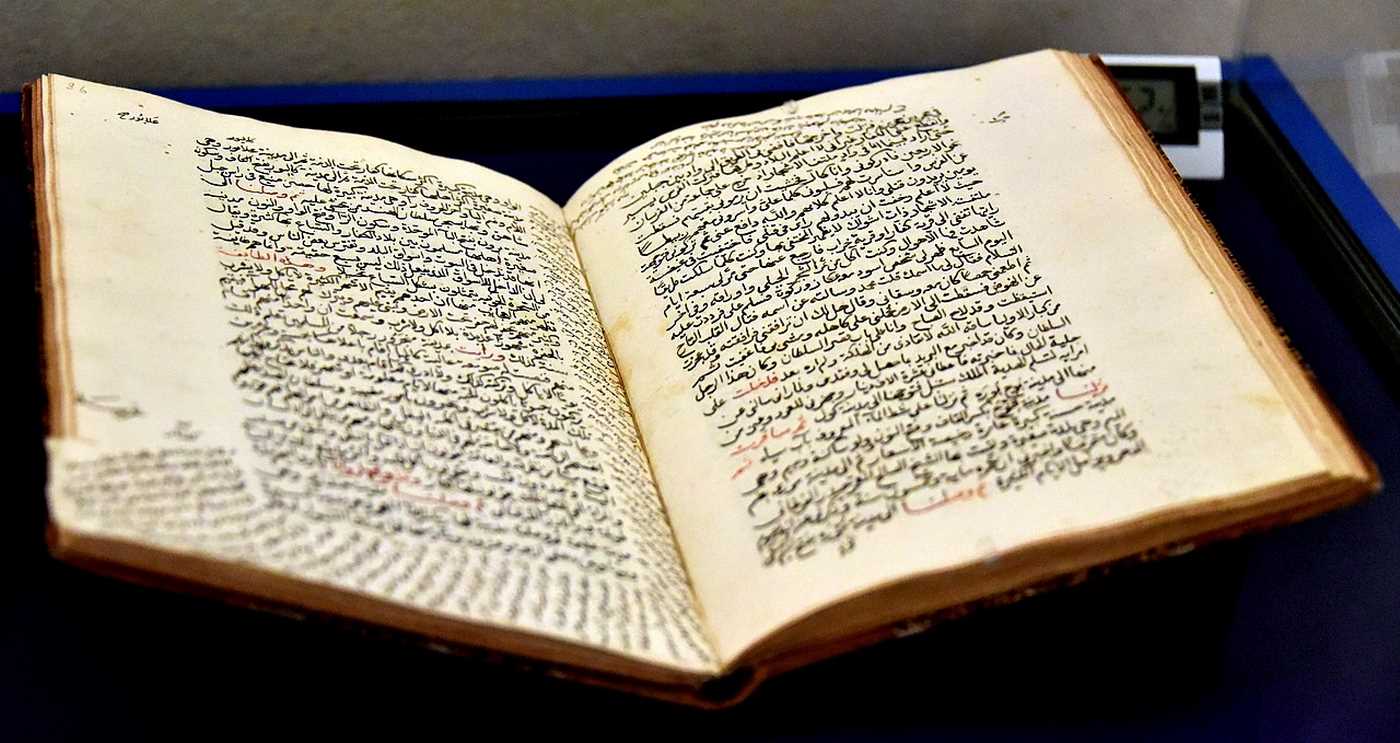668 years ago, the Moroccan traveler, writer, pilgrim, and jack of all social trades, Ibn Battuta, completed his monumental travelog, often shortened to “The Travels,“ detailing a span of time from the moment he left his home in Morocco and didn’t return to settle down for nigh on three decades. He traveled 79,000 miles of Asiatic and African land and water, visiting China, India, Malaysia, Sri Lanka, Istanbul, and Tomboktu, became involved in plenty of local political events, became an Islamic judge in Pakistan, and may have fought in as many as three military skirmishes of various sizes. READ more about the great traveler… (1,355)

A Gift to Those Who Contemplate the Wonders of Cities and the Marvels of Travelling, the book’s full name, is a strange sort of text to read now since it very much was written for Battuta’s own thoughts or those living at the time. For example, across all of North Africa, Arabia and the Holy Land, his recounting includes virtually nothing other than the scantest information: “there are beautiful gardens in this city,” or “a holy sheik lives here.” This is probably because anyone reading would have known what cities in these countries looked like, and maybe even had visited them.
It’s when Battuta arrives in Turkestan and takes a role as an imam for a warlord, or when he departs Iran via boat for India and Sri Lanka that the journey becomes interesting, as he begins to write more and more about the people, the customs, the animals, and more.
It was the crowning work in a liturgical tradition of travel writing among the Medieval Arabs, who between the 9th century and 14th century were the principal force connecting Eurasia and Africa through trade, diplomacy, and exploration. Today, the Arab world will still refer to those who decide to give the greater part of their youth over to traveling “Ibn Battuta.”
MORE Good News on This Date:
- Sir Francis Drake of England set out with five ships on a nearly 3-year journey around the world (1577)
- Guess Who’s Coming to Dinner starring Spencer Tracy, Sidney Poitier, and Katharine Hepburn, was released in U.S. theaters depicting interracial marriage in a positive light, something that was still was illegal in 17 states (1967)
- Malta became a republic (1974)
- South African President Willem de Klerk met for the first time with imprisoned ANC leader Nelson Mandela, at his office in Cape Town (1989)
- The European Union said it would add new members: Cyprus, the Czech Republic, Estonia, Hungary, Latvia, Lithuania, Malta, Poland, Slovakia, and Slovenia (2002)
Happy Birthday to beloved entertainer Dick Van Dyke, who turns 98 years old today. Known for his beaming smile, physical dexterity, impeccable comic timing, and unforgettable screen roles, the actor, comedian, writer, singer, dancer, and producer starred in films such as Bye Bye Birdie, Mary Poppins, and Chitty Chitty Bang Bang—and on television in The Dick Van Dyke Show.
And, he’s still dancing. In fact, in a 2018 film, Mary Poppins Returns, Van Dyke played the son of a character he played in the original 1964 film, with much makeup that turned him into an old man—Mr. Dawes, the chairman of the bank.

Dancing on a desk, looking exactly like the original Mr. Dawes from the first Mary Poppins, he re-created the dancing old man by hopping up on a desk, unaided by any steps.
Winning Emmy, Grammy, and Tony awards, he told the extraordinary tale of how he got his break on Broadway in his 2012 memoir, My Lucky Life In and Out of Show Business. In 1960 Van Dyke auditioned for a small part in Bye Bye Birdie. He had no dance experience, so after he sang his audition song he did an impromptu soft-shoe out of sheer nervousness. Gower Champion, the show’s director and choreographer, was watching and promptly went up on stage to inform Van Dyke he just won the lead role of Albert Peterson. An astonished Van Dyke protested that he could not dance, to which Champion replied “We’ll teach you”. That musical won 4 Tony awards including Best Featured Actor for Van Dyke.
Fellow residents of Malibu, California swear that he still dances through the aisles at the grocery store, according to Zoomer.
And Van Dyke had been staying in touch with his fans in 2020, offering personalized video messages on the popular Cameo platform for a fee of $500, recording birthday wishes and occasionally doing soft shoe, though he can’t keep up with demand.
“I didn’t really get a break until I was 35 years old,” he told a fan turning 40. “I have a philosophy that always helped me — there is no such thing as an adult. An adult is just a costume, a disguise that a kid puts on so they can get through adult life. But you strip away that disguise and you’ve got a 13-year-old kid having a snit fit.” WATCH a 2018 interview and hear what else he is up to… (1925)
And, 94 years ago today, the Canadian gentleman actor Christopher Plummer, best known for portraying the von Trapp father in The Sound of Music, was born. In 2019, he became the oldest actor ever nominated for an Oscar for his role in All the Money in the World. The nomination was Plummer’s third—with his first being for the 2010 film The Last Station, in which he played Russian novelist Leo Tolstoy.
Plummer then won Best Supporting Actor for his 2011 portrayal of a terminally ill man who comes out to his son in the film Beginners. Plummer, then 82—and the oldest actor winner to date—held the statuette aloft and asked, ‘Darling, where have you been all my life?’

Also in his illustrious career he has won 2 Emmys and 2 Tonys—becoming one of the few performers to receive the so-called Triple Crown of Acting. And he’s still busy in Hollywood today, with two films released in 2019 including the star-studded Knives Out.
Plummer portrayed numerous other historical figures, including Emperor Commodus in The Fall of the Roman Empire (1964), Arthur Wellesley, 1st Duke of Wellington in Waterloo (1970), Rudyard Kipling in The Man Who Would Be King (1975), Mike Wallace in The Insider (1999), Kaiser Wilhelm II in The Exception (2016), and J. Paul Getty in All the Money in the World (2017). In Plummer’s memoir, In Spite of Myself, he revealed that he turned down the role of Gandalf in Lord of the Rings, and regrets it. He died in 2021. WATCH a tribute and interview from 2018… (1929)
SHARE the Milestones and Memories…





















[…] post Good News in History, December 13 appeared first on The Good News […]
[…] Posted From: https://www.goodnewsnetwork.org/events061213/ […]
[…] Brought to you by:- https://www.goodnewsnetwork.org/events061213/ […]
[…] post Good News in History, December 13 appeared first on Good News […]
[…] Read More: Good News in History, December 13 […]
[…] post Good News in History, December 13 appeared first on Good News […]
[…] Good News Network […]
[…] Good News Network […]
[…] Good News Network […]